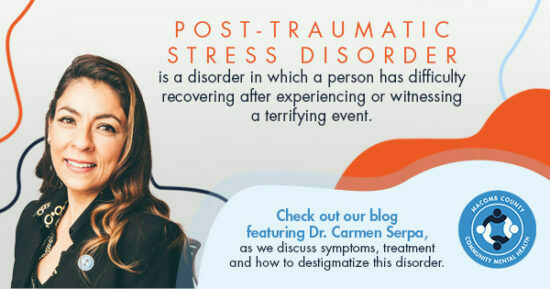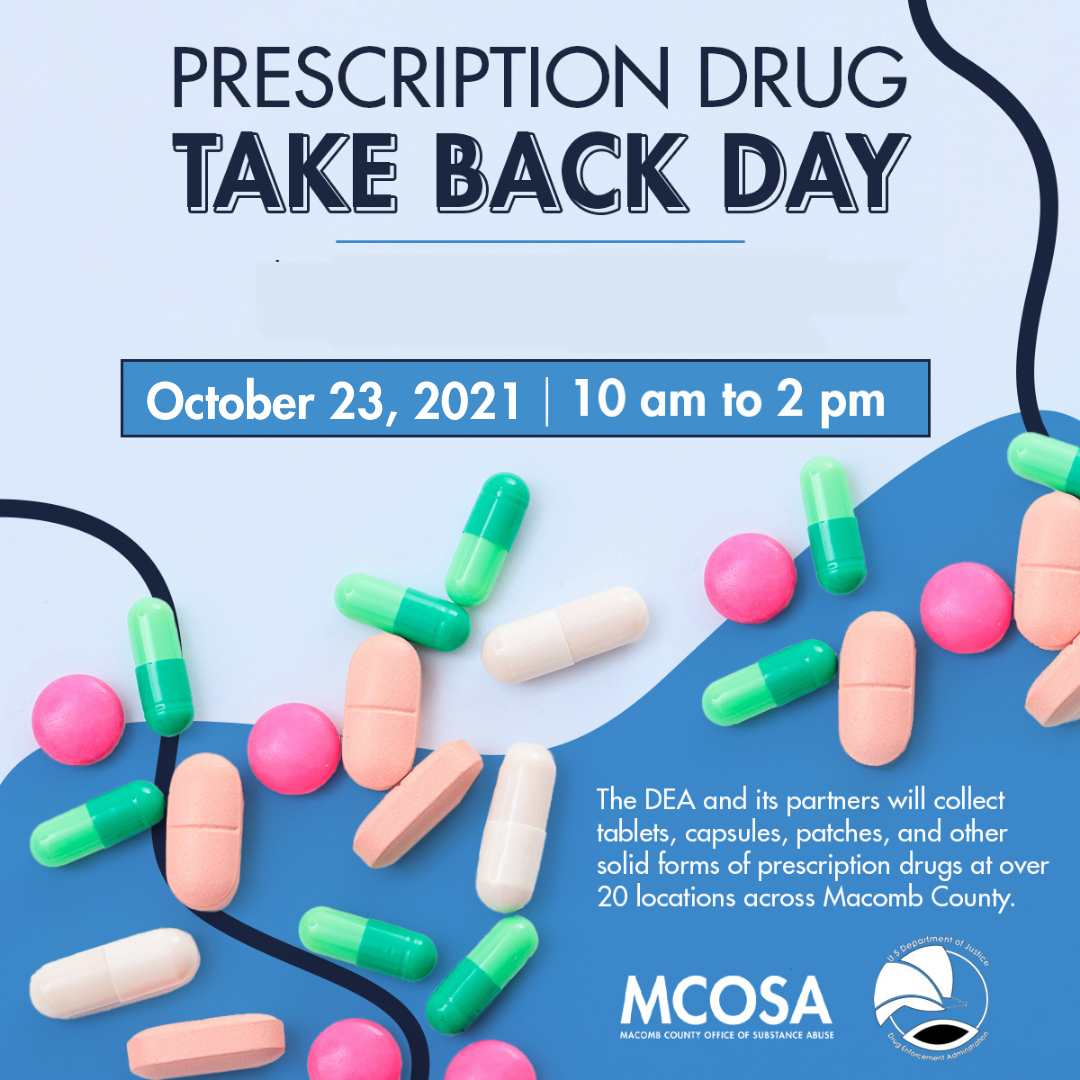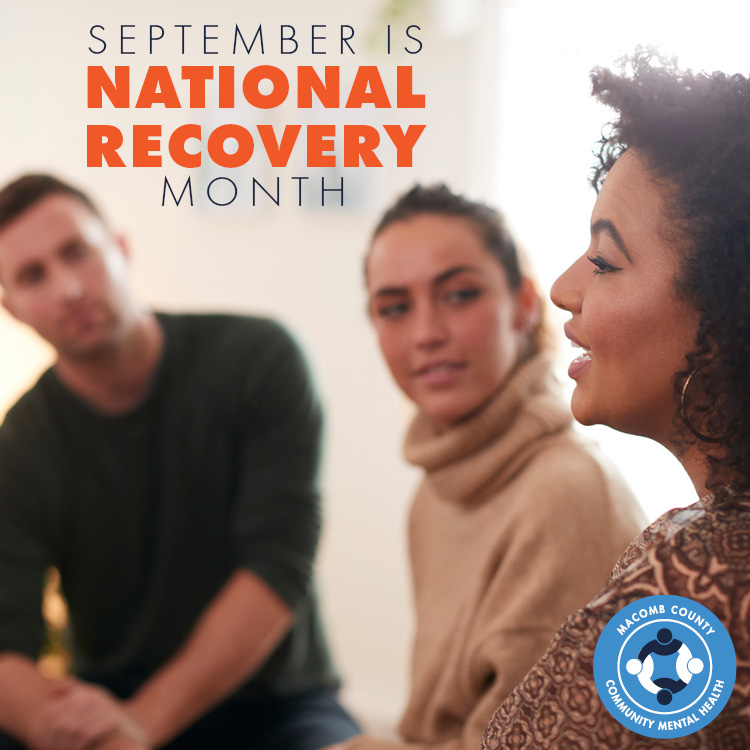
PTSD- Signs, Symptoms and Treatment:
Post-Traumatic Stress Disorder, or PTSD, is a disorder in which a person has difficulty recovering after experiencing or witnessing a terrifying event.
Who is affected:
Anybody can suffer from PTSD, be a child or an adult. “Brief or prolonged exposure to an exceptionally threatening or catastrophic event, lived in first person or as a mere witness, could cause profound trauma leading into PTSD,” said Dr. Carmen Serpa, our Chief Medical Officer. She said while anyone can suffer from PTSD, it is important to know of some of the risk factors that could influence the onset of PTSD or complicate its course:
- Women are more likely to develop PTSD
- Having had a trauma in childhood.
- Feeling horror, helplessness or extreme fear.
- Undergoing recurrent exposure to the same or different traumas.
- Have little or no social support after the event.
- Coping with additional stress after the event (loss of a loved one, injury, loss of a job, etc.).
- Having a history of mental illness or substance use.
Symptoms:
The symptoms are generally grouped as intrusive memories, avoidance, negative changes in mood and thinking, and changes in physical and emotional reactions.
Intrusive memories include unwanted and recurring distressing memories of the traumatic event, flashbacks or disturbing dreams.
The avoidance symptom includes trying to avoid thinking or talking about the traumatic event or avoiding places, activities or people that remind the person of the event.
Negative changes in mood and thinking includes lack of interest in activities once enjoyed, negative thoughts about yourself, other people, or the world, feeling hopeless, memory problems, or difficulty maintaining close relationships.
The changes in physical and emotional reactions symptom includes being easily scared, having overwhelming guilt or shame, always on guard against danger, irritability, angry outbursts, difficulty sleeping or self-destructive behavior such as drinking too much.
Symptoms can vary over time or vary from person to person. “Individuals may experience exacerbation of their PTSD symptoms when they are under more stress than usual or when they come across reminders of what happened. For example, watching a movie scene about an assault and be overwhelmed by memories of their own assault, or hearing the sound of a siren and be reminded of their time in combat,” Serpa said.
Symptoms of PTSD can begin within a month of a traumatic event, but sometimes they may not appear until years after the event. They can also come and go for many years. “These symptoms cause significant problems in social situations, work and in relationships. They can also interfere with the individual’s ability to do their normal daily tasks, home and work life,” said Dr. Serpa.
Treatment:
The first line treatment options for PTSD are psychotherapy, medications, or both. “Research shows that the implementation of both, psychotherapy and medications, leads to better treatment outcomes. PTSD affects people differently, so a treatment that works for one person may not work for the other one,” Serpa said. If you have been diagnosed with PTSD, you need to work with a mental health professional to find the best treatment for your symptoms.
Psychotherapy session will teach individuals about their symptoms. Sessions help patients to learn to identify what triggers them and how to manage their responses to those triggers and symptoms. There are different types of psychotherapy for PTSD, psychotherapy should always be tailored to the patient’s clinical needs.
Antidepressants can help control PTSD symptoms such as sadness, worry, anger, anxiety and feelings of numbness inside. Antidepressants to date are the main type of medications indicated to treat PTSD. Other medications can help with sleep problems and nightmares.
“For PTSD cases with limited response to these treatments, other alternative treatments have been developed over the last few years. Individuals can discuss these options with their psychiatrist and make an educated decision about what options works best for them.”
How to Get Help:
MCCMH can help those with PTSD. Through our direct and partnering Community Mental Health providers, Mental Health Clinic teams can help PTSD patients by counseling and treating them to get better. The clinics offer different types of treatments where the patient works to improve their quality of life and overcome problems such as: depression, anxiety, alcohol and drug abuse, thinking about harming themselves or others, problems at work, in relationships or with physical health. Some of the assistance CMH clinics offer include:
- 1 to 1 psychotherapy.
- Group therapy when indicated, as not all patients depending on their trauma may be good candidates for this type of therapy.
- Referrals for special needs, such as anger, stress management, veterans support or substance use treatment.
- 1 to 1 family therapy to help the individuals and their family units in the context of their struggles.
- Psychiatrist access to provide with medications recommendations to treat PTSD if the individuals so choose.
Even if the trauma is of complex nature, it can be worked through. “By reaching out to the right professionals and working together with them, the individuals don’t have to live with the crippling symptoms of PTSD or any other type of mental disorder for that matter,” Dr. Serpa said.
“It is important to say that currently, mental health clinics also offer different support channels to help the patient in their treatment to make services more accessible to them live such as chats, telephone lines, online therapies, etc. These many times are free of charge and depending on the type of service fully anonymous.”
Dr. Serpa says there are ways that both members of the community, and mental health professionals can help to eliminate the stigma surrounding PTSD like:
- Work closely with our community leaders, schools, and legal system to help to significantly reduce the stigma surrounding mental illness.
- Advocate with our State Legislatures to increase mental health funding; we have to continue to develop better infrastructure and services to provide care to those who suffer from mental disorders.
- Make good use of the internet and other media platforms to provide the public with information about the subject so that people can not only get help but help their loved ones and encourage them to seek help.
- Facilitate confidential service access, totally confidential treatment alternatives are good options to people in order to feel more comfortable seeking help.
For more information about PTSD and how we can help, visit www.mccmh.net or call us directly at 855-99-MCCMH.




